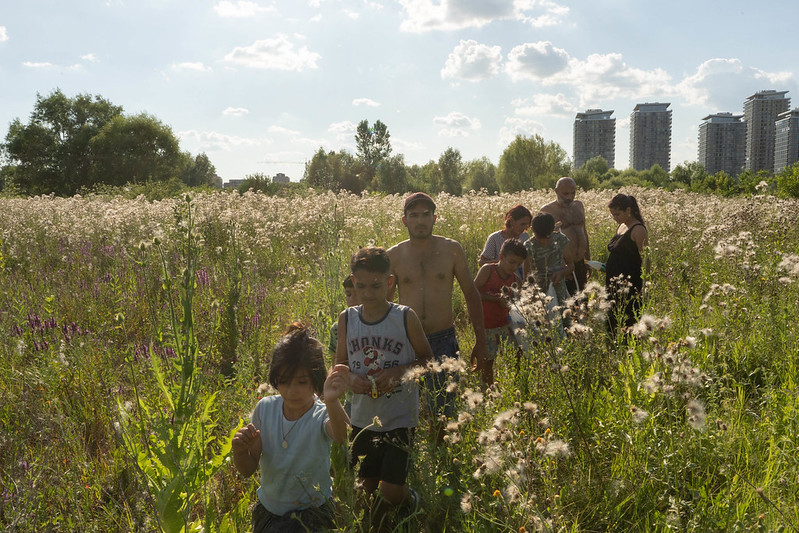
Sundance Film Review: Acasӑ, My Home
Sundance
Acasӑ, My Home
Sundance Film Festival
Director: Radu Ciorniciuc
In World Documentary selection Acasӑ, My Home, the Enache family lives in an abandoned urban water reservoir called Acasӑ in the Bucharest Delta of Romania. Thought of as a park, it’s a kind of Eden: The children swim and fish, sometimes heading into town to sell fish so they can buy supplies but mostly enjoying their existence outside until they go to sleep in their hut. Most palpable—which, sadly, we may not realize until later—is the familial bonds they share with one another. It’s almost like a bestowal from their pastoral surroundings, or perhaps it reflects some scientific underpinnings vis-à-vis how wildness affects families living in a natural liminal space. Nevertheless, social services and the local government seek to extract the Enache family, and force the children into school and the parents to work.
Acasӑ, My Home boasts beautiful videography. The opening shot shows the sun reflecting on the water, on which the children raft. The film depicts the reservoir as having the qualities of a sanctuary. Sometimes their living site is littered with bits of garbage, but it’s clear that it’s a subdued byproduct of people making a home there. This documentary accomplishes presenting and validating the viewpoint of the Enache family as far as why they live in Acasӑ. Beyond benefitting from its soothing, natural characteristics, father Gicӑ Enache—who had had a respectable job as a lab assistant—settled his family in the reservoir to escape the depravity he felt in contemporary society.
After the family is assimilated, the eldest son, Vali Enache, begins to pull away from the Enache family center. While he vies for independence just as any 18-year-old would, the effects of the family having been forced into a cramped, low-income housing situation appear, at the very least, to amplify the rift between Vali and his parents. We see sadness in each family member’s eyes, and brother Ricӑ Enache’s tearful castigation of Vali for not caring about the family anymore—now that they live in the city—is affecting. An upsetting scene involves the eldest boys fishing in a city pond. The police come, and one of the officers punches Vali in the stomach. On top of all of the condescension that the government casts while uprooting the Enache family—not to mention the racism they suffer on account of mother Niculina Nedelcu being Romani—Acasӑ, My Home illuminates the tension we accept in Western society on an everyday basis.
Acasӑ, My Home succeeds as a cinéma verité documentary that offers a compelling case study about the shortcomings of how we live. The abstractions of gentrification and state violence become visible as they encroach on the Enache family in the park. An argument could be made that Gicӑ put his children at a disadvantage by sheltering them from traditional education. Yet, observing their erstwhile contentment, they may well have been model citizens all along. Ultimately, you should see Acasӑ, My Home for the healthy challenge it poses to most of our lifestyles and their contradictions. –Alexander Ortega
Showtimes:
Jan. 28 // 3:30 p.m // Redstone Cinema 1 Park City
Jan. 29 // 8:30 a.m // Prospector Square Theatre Park City
Jan. 30 // 9:00 p.m // Broadway Center Cinema 6
Jan. 31 // 4:00 p.m // Redstone Cinema 2 Park City
Read more of SLUG’s comprehensive coverage of the 2020 Sundance Film Festival.